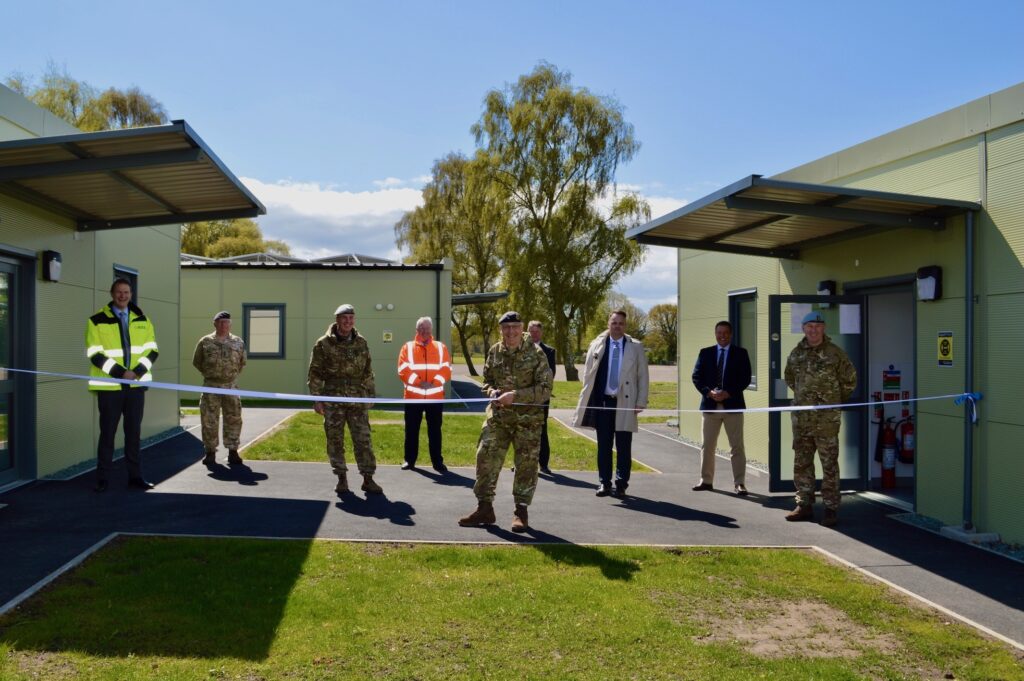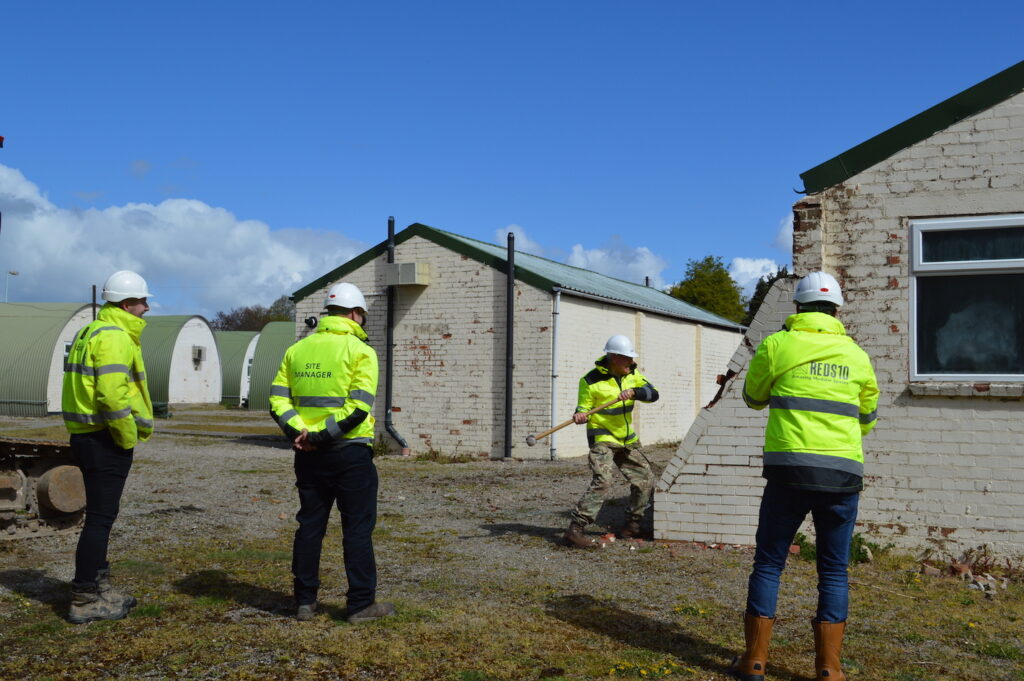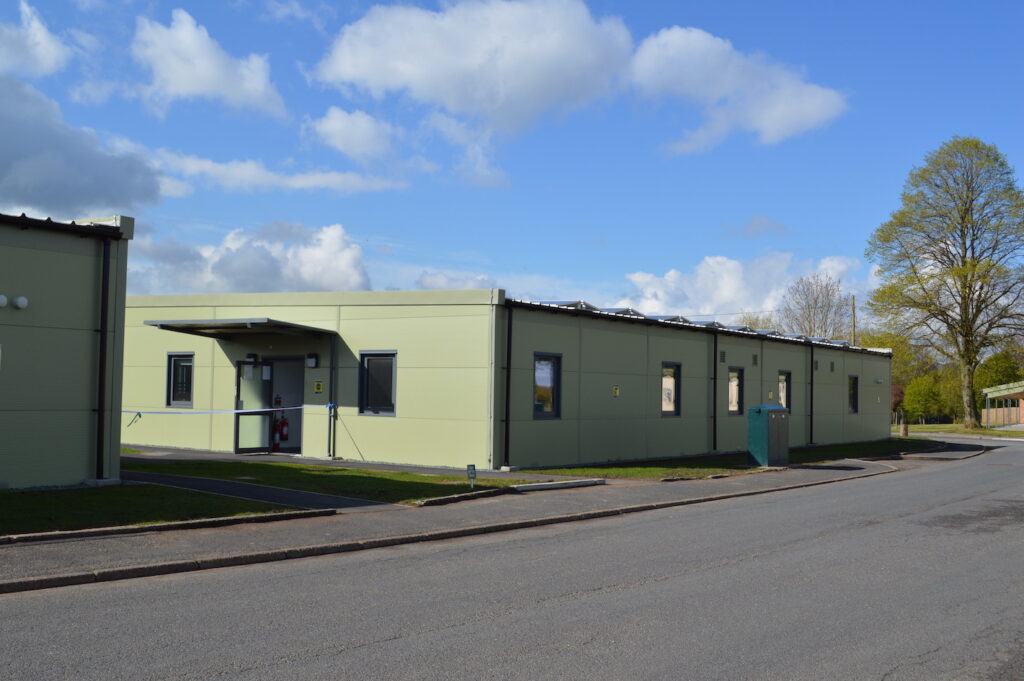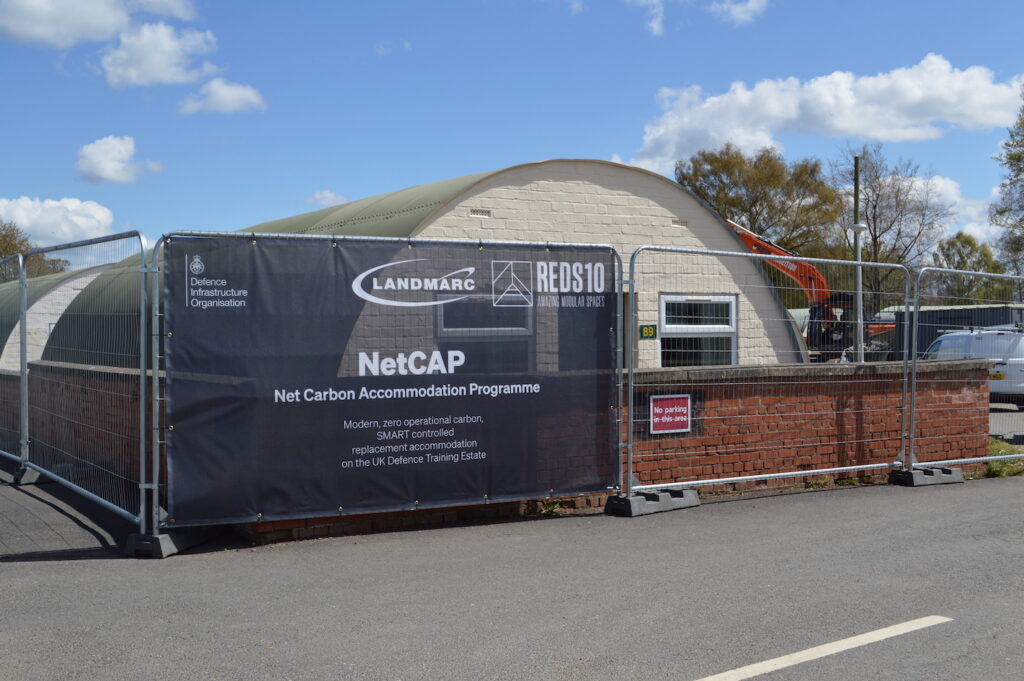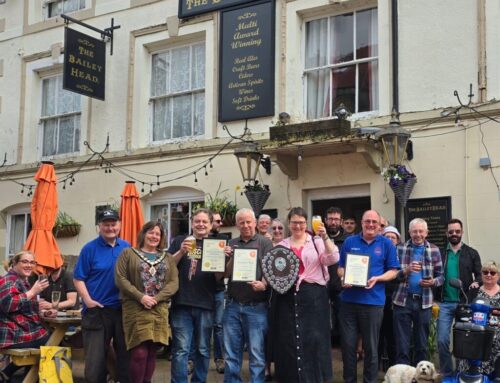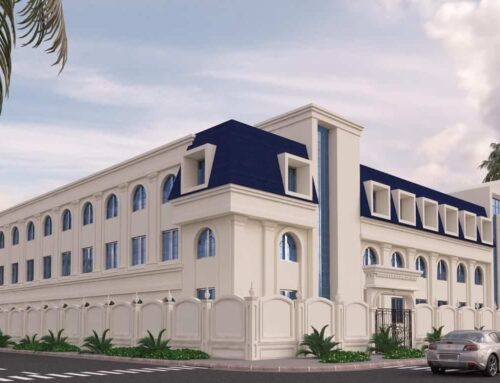The MOD’s Climate Change and Sustainability Lead, Lt Gen Richard Nugee, has officially opened three new environmentally friendly buildings at Nesscliff Training Camp.
The accommodation blocks form part of a wider investment being undertaken by the Defence Infrastructure Organisation (DIO). The programme is being part-funded using money from a £200m investment to improve Armed Forces accommodation, which was announced by the Defence Secretary last summer. £45m is being invested in building new carbon efficient accommodation on the Defence Training Estate in a project called the Net-Zero Carbon Accommodation Programme (NetCAP).
Lt Gen Nugee was briefed on the programme, which will see over 40 new carbon efficient accommodation blocks, providing more than 1,900 bed spaces, installed across the country by DIO. The blocks are being built by modular construction specialist Reds10, through DIO’s contract with industry partner Landmarc Support Services.
The General also watched the demolition of some 1930s Nissen huts, which will be replaced with more of the NetCAP buildings in a second phase at Nesscliff later this year. He then toured the three completed buildings with Paul Ruddick, Reds10 Chairman, and cut the ribbon to officially open the new accommodation.
The first NetCAP building opened at Westdown Camp on Salisbury Plain last summer and has since been followed by other new carbon efficient blocks at Castlemartin Training Area in Pembrokeshire, Brunswick Camp in Surrey and Knook Camp, also on Salisbury Plain. Each new block is an iteration on the same design, with the Reds10 team looking at ways to reduce energy use and embodied carbon for each new version.
The three buildings at Nesscliff have improved on the Westdown Camp proof of concept and have an Energy Performance Certificate rating of –5, thanks to solar panels on the roof, air source heat pumps and a heat recovery system in the showers and drying rooms. This means they will be able to generate power for the site, reducing electricity costs.
The team were also able to reduce embodied carbon by 30% at Nesscliff, as compared to the Westdown Camp prototype. Smart technology in the blocks allows Landmarc to monitor energy use, how the buildings are being used and if necessary, make changes remotely to all the NetCAP buildings. This further helps to reduce energy use and running costs.
Brigadier Jonathan Bartholomew, DIO’s Head of the Overseas and Training Region said: “I was delighted to welcome Lt Gen Nugee to Nesscliff Training Camp and show him these buildings, which are a testament to the MOD’s commitment to sustainability. As our Climate Change and Sustainability lead, he took a real interest in all of the steps being taken to make the blocks as efficient as possible.
“As well as being as sustainable as we can make them, these new modular built blocks are the sort of high-quality accommodation our serving personnel deserve, which helps them to give their best during a training exercise.”
Mark Neill, Managing Director at Landmarc, said: “We are committed to supporting the MOD and DIO with their net zero carbon goals, so this was a great opportunity to show Lt Gen Nugee how we’re driving down carbon by improving building standards across the Defence Training Estate.
“Not only is this investment helping to deliver a more sustainable estate, but it also supports the government aim to improve living accommodation for our Armed Forces, whilst helping to kick start the economy by using an end-to-end UK supply chain.”
Paul Ruddick, Chairman of Reds10 said: “We are delighted to be delivering continuous improvements to the programme, alongside DIO and Landmarc, with each NetCAP building. The programme is leading the way in the government’s commitment to build back better, greener and faster. The buildings at Nesscliff Training Area truly showcase how agile the approach to the programme has been, from the very start. It was an absolute pleasure to be able to show Lt Gen Nugee the buildings personally.”
The remainder of the £200 million investment is being spent on Service Family Accommodation and training accommodation at Longmoor Training Camp, and improvements to Single Living Accommodation in Army barracks, RAF bases and Naval establishments.


